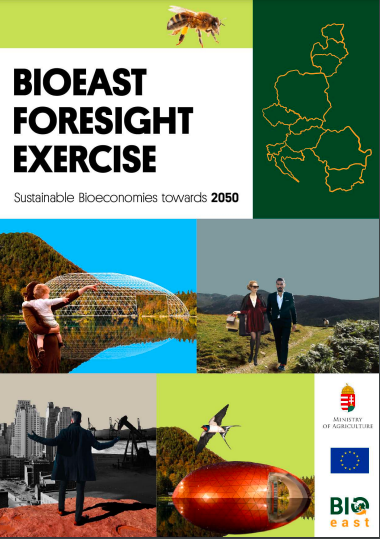BIOEAST Foresight Exercise
Title: BIOEAST Foresight Exercise: Sustainable bioeconomies 2050
Duration: April 2020 – May 2021 (report published September 2021)
Description:
In line with the implementation of the BIOEAST Vision 2030 and with the funding of the Horizon 2020 coordination and support action (BIOEASTsUP) a macro regional foresight exercise was conducted to support the BIOEAST Member States in developing their sustainable bioeconomies. The aim was to build upon existing foresight reports and to deliver new insights about possible pathways for the deployment of bioeconomies in the macro-region. The main objective of the foresight exercise was to identify the specific macro-regional needs, challenges and potentials, and to provide advice to policy- and decision-makers as well as to contribute to the development of the BIOEAST Strategic Research and Innovation Agenda, to connect knowledge and encourage stakeholder participation in the field of bioeconomy in the region of Central and Eastern Europe and to create three scenarios for the transition to bioeconomy and circular economy by 2050. Scenarios will be the basis for developing national or regional strategies. 11 countries are participating in the initiative.
The BIOEAST Board invited the Foresight Expert Group (FEG) to specifically focus on the following four areas:
a) Sustainable natural resources, particularly soils and water
b) Sharing economy in the context of sustainable food system
c) Renewable carbon use and decarbonisation pathways
d) Governance in the context of circular and sustainable pathways
Ladeja Godina Košir (Chair of the FEG) and Circular Change carried out the project coordination, multistakeholder engagement and workshops, copyrighting and the redaction of the document, guidelines and recommendations.
BIOEAST Foresight Report: https://bioeast.eu/wp-content/uploads/2021/10/BIOeast-Report-2021_FINAL_compressed-1.pdf
Foresight Conference Documents: https://bioeast.eu/events/bioeast-foresight-conference-climate-neutral-future-depends-on-sustainable-bioeconomies/

